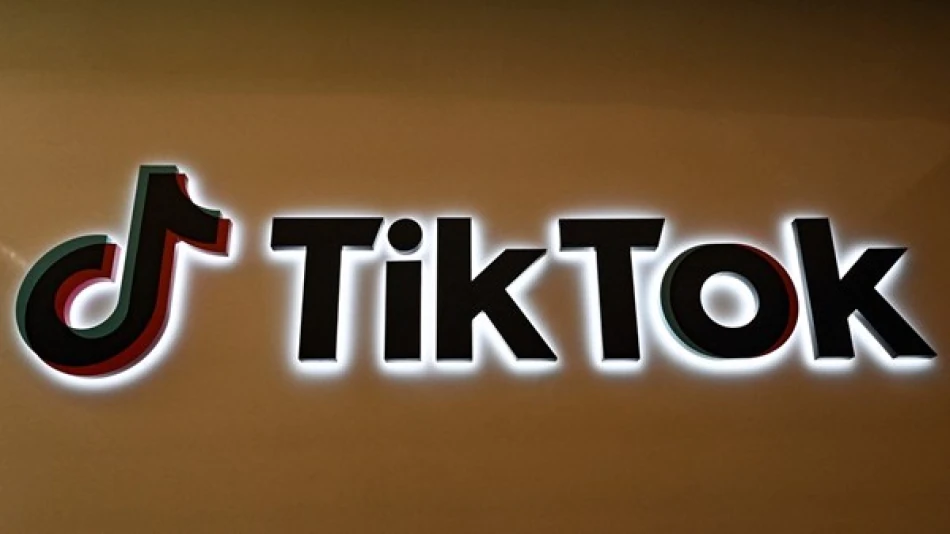
China Addresses TikTok Talks with the U.S., Seeking Diplomatic Resolution
China Holds Firm on TikTok Demands Despite Trump's Deal Optimism
China maintained its strategic position on TikTok's future in the United States, emphasizing that any deal must comply with Chinese regulations and balance interests of both nations. This stance comes as questions mount over the ownership structure and operational control of the platform serving 170 million American users, potentially setting the tone for broader U.S.-China economic negotiations.
Beijing's Calculated Response to Washington's Pressure
The Chinese Ministry of Commerce reiterated its position in a Saturday statement, declaring that "China's position on TikTok is clear: the Chinese government respects the company's wishes and welcomes commercial negotiations according to market rules to reach a solution that complies with Chinese laws and regulations and achieves a balance of interests."
This measured response reflects China's broader strategy of appearing cooperative while maintaining leverage. Rather than outright rejecting negotiations, Beijing positions itself as the reasonable party seeking market-based solutions—a tactic reminiscent of its approach during previous trade disputes.
The High-Stakes Questions Behind Closed Doors
Despite Trump's optimistic tone following his Friday phone call with Chinese President Xi Jinping, critical uncertainties remain unresolved. The deal's success hinges on three pivotal questions that could determine whether this becomes a genuine compromise or merely political theater.
Ownership Structure Remains Murky
The most contentious issue involves how much control ByteDance, TikTok's Chinese parent company, will retain. Previous proposals have ranged from complete divestiture to complex partnership structures involving American technology companies. China's insistence on compliance with its own regulations suggests Beijing won't accept a complete selloff of what it considers a strategic digital asset.
Operational Control and Data Security
Beyond ownership percentages lies the practical question of who controls TikTok's algorithms, user data, and content moderation policies. American lawmakers have consistently cited national security concerns about Chinese access to American user data, while China views its algorithmic technology as a core competitive advantage not to be surrendered lightly.
Strategic Implications for Global Tech Governance
This negotiation extends far beyond TikTok itself, serving as a bellwether for how the world's two largest economies will handle technology transfers and digital sovereignty. The outcome could establish precedents for other Chinese tech companies operating in America and American platforms seeking access to Chinese markets.
China's demand for "an open, fair, equitable and non-discriminatory business environment" for Chinese companies operating in the United States signals that Beijing views this as part of a broader reciprocal arrangement. This language mirrors complaints Chinese officials have made about American restrictions on companies like Huawei and semiconductor manufacturers.
Market Dynamics and Economic Leverage
The timing of these negotiations coincides with both countries seeking to move beyond their current tariff truce toward more comprehensive economic cooperation. TikTok's 170 million American users represent significant economic value—estimated in the tens of billions of dollars—giving China substantial bargaining power.
For American investors and technology companies, the resolution could signal whether the Biden-era approach of targeted restrictions on specific security concerns will continue, or whether broader decoupling between American and Chinese technology ecosystems is inevitable.
The Path Forward
Chinese officials and state media described last week's framework agreement reached in Madrid as "mutually beneficial," suggesting room for compromise exists. However, China's consistent emphasis on compliance with its own laws indicates that any final deal must allow Beijing to claim it protected Chinese corporate interests while appearing cooperative on American security concerns.
The success of these negotiations will likely depend on whether both sides can craft a structure that allows each to declare victory domestically while creating operational clarity for TikTok's continued American operations. Given the platform's massive user base and cultural influence, failure to reach agreement could accelerate the broader technological decoupling that both economies have reasons to avoid.
Most Viewed News

 Layla Al Mansoori
Layla Al Mansoori






